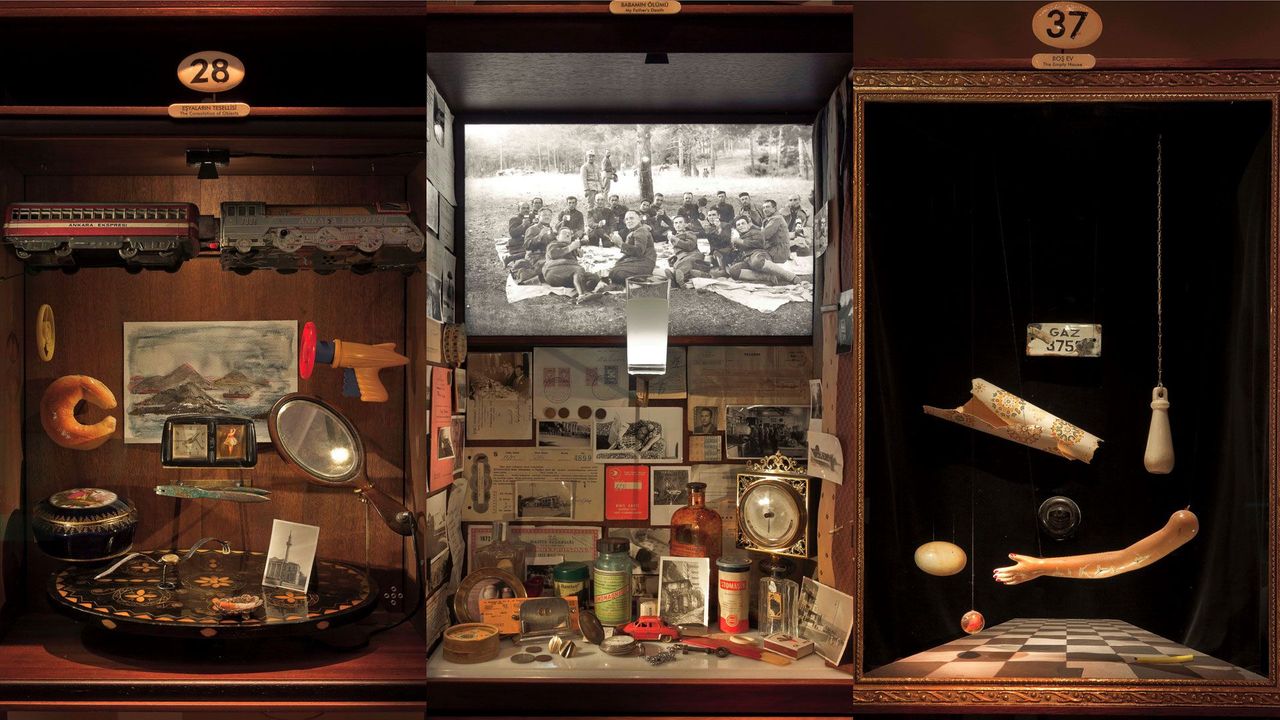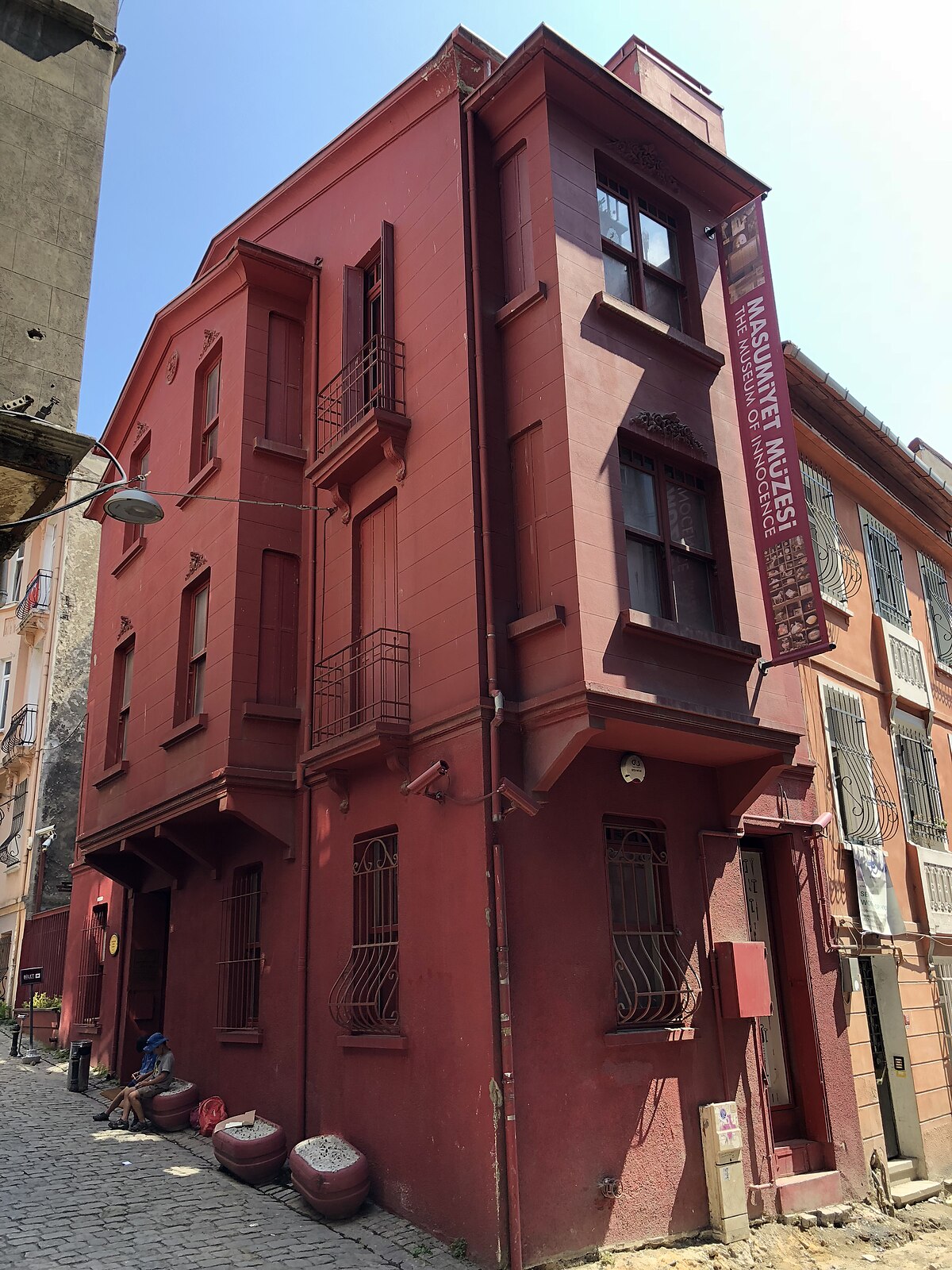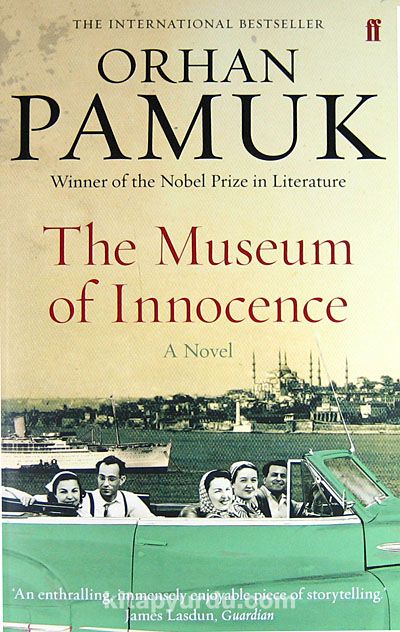The Museum of Innocence - Orhan Pamuk
"The Museum of Innocence" by Orhan Pamuk is a novel that intricately weaves together the themes of love, memory, and societal expectations. Below is a brief analysis:
- Genre and Style:
"The Museum of Innocence" can be classified as a novel of romantic fiction and social commentary. Pamuk employs a reflective and nostalgic style, creating a narrative that blurs the lines between personal and societal memory. The novel is set in Istanbul and spans several decades.

- Plot Summary:
The story follows the character Kemal Basmacı, a wealthy businessman in Istanbul, as he navigates a tumultuous love affair with his distant relative, Füsun. The narrative unfolds against the backdrop of social and political changes in Turkey, providing a rich historical context. As Kemal becomes increasingly obsessed with Füsun, he starts collecting and preserving objects associated with their relationship. These objects become the foundation for the Museum of Innocence, a physical space that represents Kemal's memories and the passage of time.
- Themes:
- Love and Obsession: The novel explores the complexities of love, particularly the obsessive and possessive aspects. Kemal's infatuation with Füsun becomes a central theme, and the story delves into the impact of love on personal identity and societal expectations.
- Memory and Nostalgia: "The Museum of Innocence" is a meditation on memory and nostalgia. The act of collecting objects becomes a tangible expression of the characters' desire to preserve and relive moments from the past. The novel suggests that memory is subjective and malleable, influenced by personal perspectives.
- Social Change: The narrative spans several decades, allowing Pamuk to capture the societal changes in Istanbul. The novel reflects on the tensions between tradition and modernity, the evolving role of women, and the impact of political events on the fabric of Turkish society.

- Narrative Techniques:
Pamuk employs a first-person narrative, with Kemal recounting his story and reflections. The novel is characterized by its nonlinear structure, moving back and forth in time, mirroring the way memories are recalled. This narrative technique adds depth to the exploration of memory and the passage of time.
- Cultural Context:
"The Museum of Innocence" is deeply rooted in the cultural context of Istanbul. Pamuk paints a vivid picture of the city's social and cultural landscape, providing readers with insights into the changing dynamics of Turkish society from the 1970s to the early 2000s.
- The Museum as Symbol:
The creation of the Museum of Innocence serves as a symbolic act, representing Kemal's attempt to freeze moments in time and preserve the purity of his memories. The museum becomes a physical manifestation of both personal and societal memory.
- Reflection on Class and Social Expectations:
The novel also explores class differences and societal expectations. Kemal's engagement to a woman from his own social class is expected, and his deviation from this norm becomes a source of conflict and reflection.
"The Museum of Innocence" is a rich and contemplative novel that delves into the intricacies of love, memory, and societal change. Pamuk's evocative prose and his ability to capture the nuances of Istanbul's cultural milieu contribute to the novel's depth and resonance.
I recommend you to listen ''The Museum of Innocence'' plot summary and analysis for those who don't have time to read;
Plot summary for “The Museum of Innocence” by Orhan Pamuk;
References;
- Rich, Motoko (2008-10-16). "Turkish Novelist Denounces Government at Book Fair". New York Times. Retrieved 2008-10-16.
- Pamuk, Orhan (7 September 2009). "Distant Relations". The New Yorker. Translated by Freely, Maureen. Retrieved 18 August 2015.
- "The Museum of Innocence by Orhan Pamuk". Knopf Doubleday. 20 October 2009. Retrieved 27 February 2015.
- Conversations with history - Orhan Pamuk. YouTube. 2009-11-10. Archived from the original on 2021-12-21. Retrieved 2015-02-09.
- Ayla Jean Yackley (April 29, 2012). "Nobel winner Orhan Pamuk opens novel museum in Istanbul". Al Arabiya News. Reuters. Archived from the original on April 29, 2012. Retrieved April 29, 2012.
- "2010 ECOC Support for the Museum of Innocence". Istanbul 2010 – European Capital of Culture. Archived from the original on April 13, 2010. Retrieved July 9, 2010.
Thank you for reading!
You can complete great comment tasks at here. #themuseumofinnocence #orhanpamuk #novel #bookreview #audiobook #culture #nobel





































































